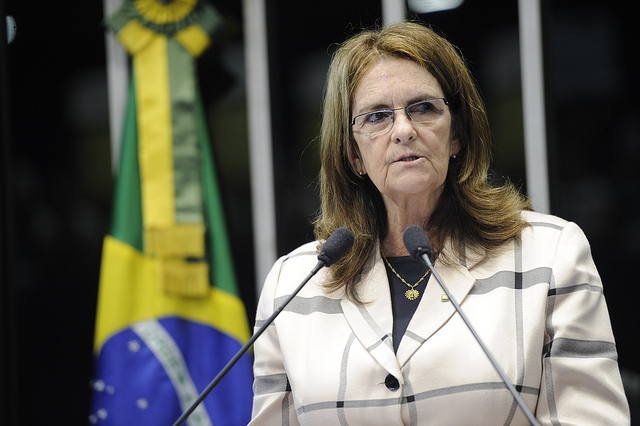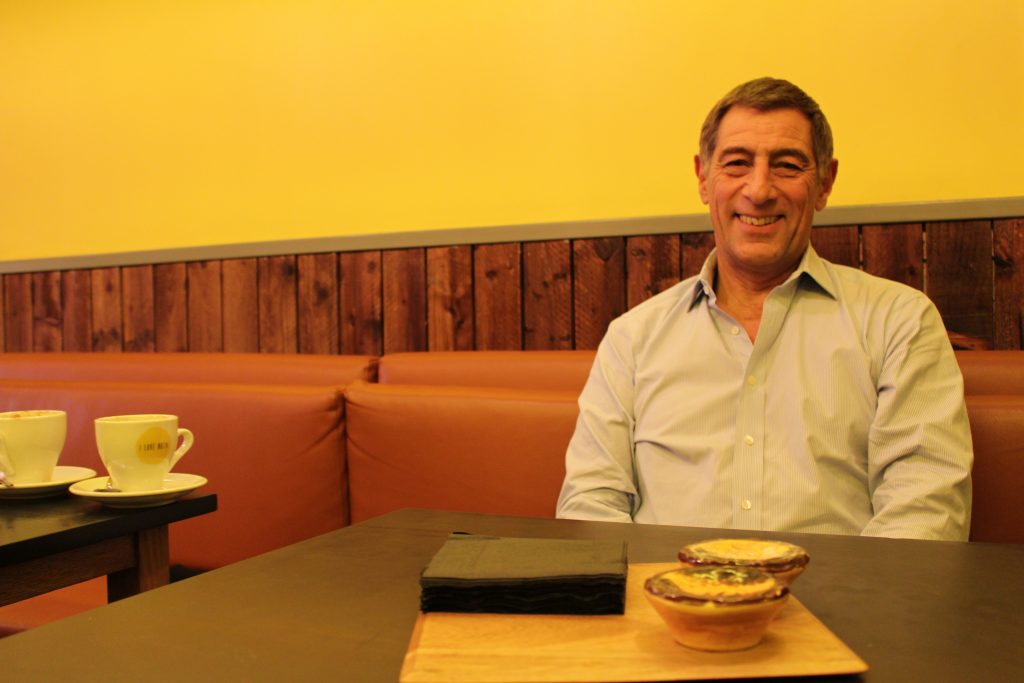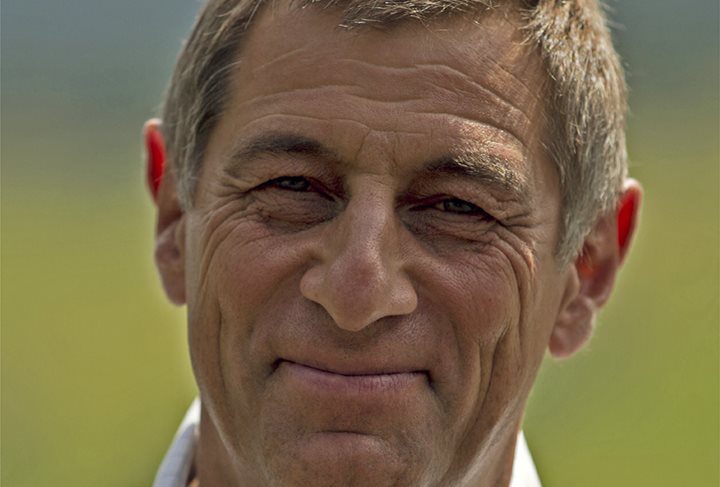In 2013, Thom Dennis went to a conference that changed his life. The former Royal Marine had been teaching leadership to big businesses for more than twenty years before going to the Offshore Technology Conference, and thought little could surprise him. However, he ended up finding himself one of just a handful of men in a talk by Maria das Graças Foster, former CEO of one of the world’s largest oil companies.
“Her talk was about abuse,” he explains to me over a coffee in central London. “What she did was release permission in the room for women to feel angry and it was papable. The one message that really sunk in with me, was that this isn’t about feminism and this isn’t about women. This is about men. And it’s men who’ve got to make a change.”
Despite the conference now being more than four years ago, his comments take on extra weight after allegations surfaced about Hollywood producer Harvey Weinstein, sparking the #MeToo and Time’s Up movements. With hundreds of thousands of posts across social media and an ongoing stream of other allegations continuing to surface, it’s clear sexual harassment is a pressing issue for 2018.
‘Permission for Women to Be Angry’
 Maria das Graças Foster giving a talk. Image Credit: Senado Federal / Flickr
Maria das Graças Foster giving a talk. Image Credit: Senado Federal / Flickr
However, sexual harassment is a complex issue, often rooted in society itself. Despite there being several provisions in human rights law designed to protect women – for example, the Convention on the Elimination of all forms of Discrimination Against Women protects women from gender-based violence, and the Human Rights Convention safeguards against inhuman or degrading treatment – it’s unlikely these will force a change alone.
This isn’t about feminism and this isn’t about women. It’s men who have got to make a change.
Thom Dennis
For Thom, it was the push he needed to try and actually create some change himself. After studying a masters degree that looked into the psychology of change and the stereotypically masculine and feminine traits within us all, he decided to set up a retreat for business leaders. However, unlike existing business workshops and retreats, he didn’t want it to focus specifically on being for either men or women. Instead, he wanted to create a space that recognises the unique traits in all of us.
“If you look around the world there’s an awful lot of women’s programmes going on,” he explains. “There’s a couple for men, but there’s virtually none which are engaging both. I just woke up and I just had to create a retreat, it was a bit of a eureka moment. I jotted down the syllabus in a day.” It wasn’t long after the idea came for a more developed programme within businesses themselves. “After #MeToo,” he continued, “I thought there has got to be a lot of HR directors walking into CEOs’ offices saying, ‘we need to do something about this’.”
‘Getting to the Root of the Problem’
 Image Credit: Jem Collins / RightsInfo
Image Credit: Jem Collins / RightsInfo
For Thom, the solution can’t just come from sanctions and policies, it’s about changing cultures for the better. “It doesn’t get to the root of the problem,” he explained. “Let’s work backwards. What we’re doing is creating a series of spaces where people can come, always working with a woman, as I can’t speak for women, and we’ll have some dialogue sessions. We want to create a space where people feel sufficiently safe to express themselves.”
I’m a typical white, 50 plus male, and it’s one of the reasons I can talk to most CEOs and look them in the eye.
Thom Dennis
As a man, setting up the programme has also led Thom to some realisations about his own experiences and privileges, stressing that while he doesn’t want to speak for women, his background can give him more of a foot in the door. “I think you teach best what you most need to learn, and I’m on a journey of discovery. I’m a typical white, 50 plus male, and it’s one of the reasons I can talk to most CEOs and look them in the eye.”
Bringing Two Movements Together

Image Credit: Yoann Boyer / Unsplash
In the wake of one of the biggest sexual harassment scandals in decades, Thom’s project is just one example of how leaders can try to bring meaningful change into everyday life. “It’s about allowing people to express themselves and make other people listen,” he added. “It’s not about having a discussion, it’s a dialogue. It’s controlled.”
We need this dialogue desperately, this is not about legislation, it’s about understanding.
Thom Dennis
Yet, while the focus of #MeToo and Time’s Up is rightly on women, Thom wants to create a movement that sidesteps the sometimes “vitriolic” discussion surrounding men’s rights or women’s rights, and includes everyone. “I’m very clear in my mind that’s where we’re going,” explained Thom. “That’s the road we’re going along and that’s why we need this dialogue desperately. This is not about legislation, it’s about understanding.”
After all, while there are undeniably many human rights issues which affect women more than men and vice versa, human rights will always be for all of us.







